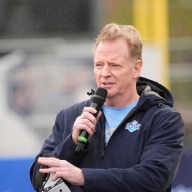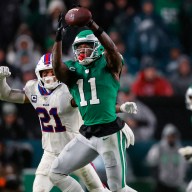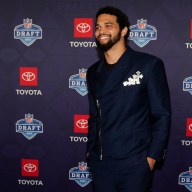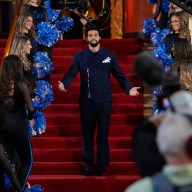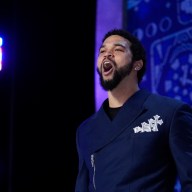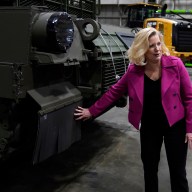Chris Cleave pits woman against woman, but not in the petty way that sells tabloids or spikes reality TV ratings. In his novel “Gold,” two venerable Olympic track cyclists vie for one spot to compete on the international stage. Outside of the velodrome, they race to survive. While Kate saddles up to the trials of motherhood — sacrificing fame to keep her leukemic daughter’s white blood cell count in check — Zoe pedals to beat her traumatic past.
In spite of their differences — and a harrowing shared secret — these rivals bring out the best out in each other. “There’s no way that [athletes] could be as good individually if there wasn’t someone else always hard at their heels,” Cleave argues. “And when they retire from sport, their greatest rival could easily become their best friend, because they know each other better than anyone else.”
From start to photo finish, “Gold” pulses with intensity and heart. We spoke to Cleave about feeling the force.
You, too, are a cyclist. Does writing to you feel the way racing does to your protagonists?
Before “Gold,” I’d been an averagely fit recreational cyclist and while I was researching it, I trained really hard. I wanted to know in my body what it felt like to win, to lose and to race without holding anything back. And I’m not a high-level competitor now, but I’m really keen. There’s a huge parallel between being a writer and a cyclist. A novel is a long-distance endurance game, and you have to have the same kind of tenacity to do it.
What are your thoughts on the upcoming Olympics?
I’m excited — the greatest show on Earth is coming to my hometown! I wanted to tell the backstory. For example, the final of the 100-meter sprint lasts 10 seconds. But what we’re witnessing [when we watch it] is the last 10 seconds of a four-year battle. I’m interested in the three years, 364 days, 23 hours, 59 minutes and 59 seconds [prior].
Women — and not just in sport — harbor complicated body image issues. In addition to researching the physical effects of racing, how did you tap into the female psyche?
Female athletes have to do and prove so much more than male athletes. When women are reaching the top of their game in their mid-20s to early 30s, society is also asking: are you going to settle down and have children? They have to make more sacrifices. And society wants female athletes to be really attractive in a way that it doesn’t demand of male athletes. There’s a double standard.
That’s why I got interested in researching and interviewing female athletes. I broadly categorized the people I met into two types: one that is single-minded and didn’t have much of a life outside of the sport and another who has a strong personal life as a foundation for their sporting achievements. It was interesting how each coped with having to perform. The people who impressed me most saw rivalry as just another kind of friendship.
How do you tackle grave subjects like pediatric cancer without getting too caught up emotionally or sentimental?
In “Gold,” I’m asking which is more important: our ambitions or our love? I went through highs and lows while writing, trying to answer that question. That’s why I’m a writer — to experience the emotions I’m writing about and to come out on the other side changed by them. Being close to your own emotional life is difficult and quite brave. There is a tendency in modern life to be cynical. Life isn’t just a joke; for most people it’s an epic struggle. I like to acknowledge the emotive reality of that.

